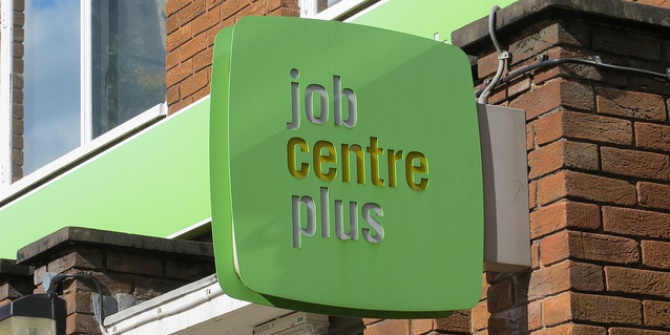
 In conflictual societies, trauma often does more than inform politics, write Adrian Little and Juliet Rogers. Focusing on examples from Northern Ireland, Australia, and South Africa they explain how the symptoms of trauma become the symptoms of policy.
In conflictual societies, trauma often does more than inform politics, write Adrian Little and Juliet Rogers. Focusing on examples from Northern Ireland, Australia, and South Africa they explain how the symptoms of trauma become the symptoms of policy.
In 2013 we presented a paper at Queens University Belfast, on the problem of trauma informing – and often overtaking – political vision in conflictual societies such as Northern Ireland, Australia, and South Africa. This work was informed by a three year Australian Research Council funded project examining narratives which spoke of resistance to ideas of reconciliation in those three countries. In the Belfast presentation we were paying specific attention to the ways in which trauma has become a particularly charged narrative in conflictual societies in an effort to, as we put it, ‘trump’ the work of politics and of justice.
At the presentation we noted a response to this work, which has come to characterise political dialogue in Northern Ireland, but also in other conflictual societies. That is, some respondents wanted to shift the discussion to other concerns in the contexts in question – ‘what about poor white people in South Africa?’ was one comment, but a series of ‘what abouts…’ ensued. In Northern Ireland this phenomenon has become known perjoratively as ‘whataboutery’. It is this phenomenon and its role in disabling, paralysing or, as we suggest, ‘trumping’ political practices of policy-making or the pursuit of justice, that we analysed in this research.
The journalist Jack Holland captures the concept of ‘whataboutery’ succinctly when he describes it as:
a sort of verbal riot, with each ‘what about’ transformed into a kind of linguistic brick to be hurled at the head of your opponent. Meanwhile, whatever started the argument, it has been forgotten about. In other words, the argument has been transformed rapidly into a riot of accusations and counter-accusations, in many ways duplicating what happens on Belfast’s streets.
We found, in our research, however, that it is not simply a phenomena isolated to Belfast. It is a technique – often a pre-emptive one – that operates in other conflictual societies in which trauma has become the dominant narrative. In our research we examined this phenomena in some of its forms, specifically in Northern Ireland and Australia, (but also in light of the post-conflict work in South Africa) and posited that its ‘brick-like’ qualities are linked to ideas of how trauma functions as not only a condition which requires some therapeutic attention, but also as a political imperative that often serves to disable broader political and legal considerations.
We argue that trauma, while obviously a pressing concern in societies that have been subject to war, occupation, or other oppressions, tends to colonise the rhetorical political space of such societies. And, that because of the emotional turn in politics more recently, as well as the urgency which narratives about trauma, pain, and grief evoke, any comment, which speaks of an event which could be called “traumatic”, functions to depoliticize as well as derail further political discussion or progress.
Building on recent political focus on the work of emotions in political arenas, trauma discourse and trauma studies, are now well-established approaches that have a dominant role in efforts towards reconciling histories of conflict in the political present. Trauma is now perceived to inhabit post-conflict societies and therapeutic intervention as well as political attention is expected in these contexts.
However, trauma and politics do not sit easily together. Politics demands action while trauma, by its very nature, courts stagnancy. This is not because traumatised people are belligerent by nature, but because trauma itself, or rather the symptoms that emerge from experiences of trauma, demand attention be directed toward an absence, a loss, a grief. When that absence cannot be filled, the demand for attention to the very real pains of trauma, becomes repetitive and insistent.
But it is not simply the symptoms of trauma which promote whataboutery. These are intimately entwined with the rhetoric on trauma that has become prevalent in post-conflict societies, and demands that trauma is healed in the interests of justice or reconciliation. This could not be more evident than in the hearings of the Truth and Reconciliation Commission in South Africa. But while such entities are designed to attend to trauma and assist in healing (using mechanisms such as accountability and truth telling), they also ensure the focus at that time is on the traumatised.
In one sense these mechanisms permit – if only for their limited duration – what we have discussed as the ordinary emotions of politics in conflictual societies: fear, hope and disappointment. It is when these emotions are superseded by rhetoric about ‘moving on’ or, worse still, ‘getting over it’, or being denied altogether, that we see whataboutery appear. However, truth and reconciliation mechanisms themselves have fueled ideas on the eradication of trauma, pain, and grief. That is, it is the belief in healing and in ‘moving on’ from trauma which pathologises these ordinary emotions. It is the rather corrupted idea of healing itself – an idea, at least in therapeutic environments, which has never suggested the overcoming of trauma – that pretends to the possibility of not needing to endure fear or disappointment and renders hope as a definitive promise of arrival on the eschatological horizon.
In our research in Northern Ireland, we examined the 2009 launch of the recommendations of the Consultative Group on the Past (the Eames-Bradley Report) and considered the importance of attending to the emotions of the past in a form which was not ‘business-like’. The recommendations of the Report attempted to attend to the trauma of victims and the families left behind, however the proposal to offer a payment to the nearest family of victims struck a miscalculated note – not least because it functioned as a determination that loss could be dealt with in a business-like fashion, as calculable. As the passionate scenes at the Eames-Bradley Launch indicated, trauma refuses calculation, and attempts to condense or codify these experiences can provoke efforts to exceed that calculation. Or, we can say that whataboutery appears when the brick is hurled back. The result being that any further recommendations from the Eames-Bradley report – a legacy commission for example – now gather dust.
In our research we further examine how whataboutery can function preemptively to trump political or justice initiatives, and how in the current penchant for transitional justice formulas, whataboutery populates the political ground for all parties. In Australia the 2008 Apology by then Prime Minister Kevin Rudd, to the Indigenous people known as the Stolen Generations, offers a clear example of preemptive whataboutery. The Apology itself was eviscerated of any reference to political initiatives at self-determination, sovereignty, legal or political reform, and, most conspicuously, it was devoid of any mention of compensation for the suffering endured. In short, it was apolitical and framed the experience as a trauma to be acknowledged, rather than a damage to be repaired or addressed substantively.
In light of this formulation we argue that it was not the trauma of Indigenous people that was being hurled at a non-Indigenous audience, it was the possible trauma that might occur toward non-Indigenous Australians who might lose something (money), have to grieve something (innocence) or be subjected to any legal or political changes that might have resulted from the lack of political or legal redress for past violence. These losses, we suggest, function in the Australian Apology as a preemptive brick waiting to be hurled at the then Australian government, and arguably successive governments.
Our argument in the cases we have looked at is that, although clearly not unrelated, separate processes of dealing with trauma and the past on the one hand, and institutional reforms in political systems on the other, need to take place simultaneously. However, that has not been the case in Australia or Northern Ireland. Ironically, it did take place in the negotiated settlement in South Africa but on the problematic assumption that the individual cases of truth and reconciliation would provide a basis for South African society as a whole to ‘move on’. On the contrary, we argue that trauma cannot be resolved and therefore that there needs to be spaces for the continuing expression of trauma which do not place impossible burdens on the possibilities of political change.
________
Note: the above draws on the authors’ published work in the Journal of Politics and International Relations.
 Adrian Little is Professor of Political Theory in the School of Social and Political Science at the University of Melbourne
Adrian Little is Professor of Political Theory in the School of Social and Political Science at the University of Melbourne
 Juliet Rogers is Senior Lecturer in Criminology in the School of Political Sciences at the University of Melbourne.
Juliet Rogers is Senior Lecturer in Criminology in the School of Political Sciences at the University of Melbourne.









Since trauma and injustice exist in so many areas of the world, alongside fear on the part of those seen as belonging to societal groups that have ‘benefitted from’ past injustices, can a formula be devised to enable current and future generations to benefit from the economic and institutional infrastructure of a common state, while acknowledging trauma without expecting that punitive redress against ‘innocent’ generations will produce healing? How does modern Germany cope with its legacy and is this any improvement on the examples cited by the authors?
Kate, is this not a whataboutery comment in itself? “…what about ‘innocent’ generations?”